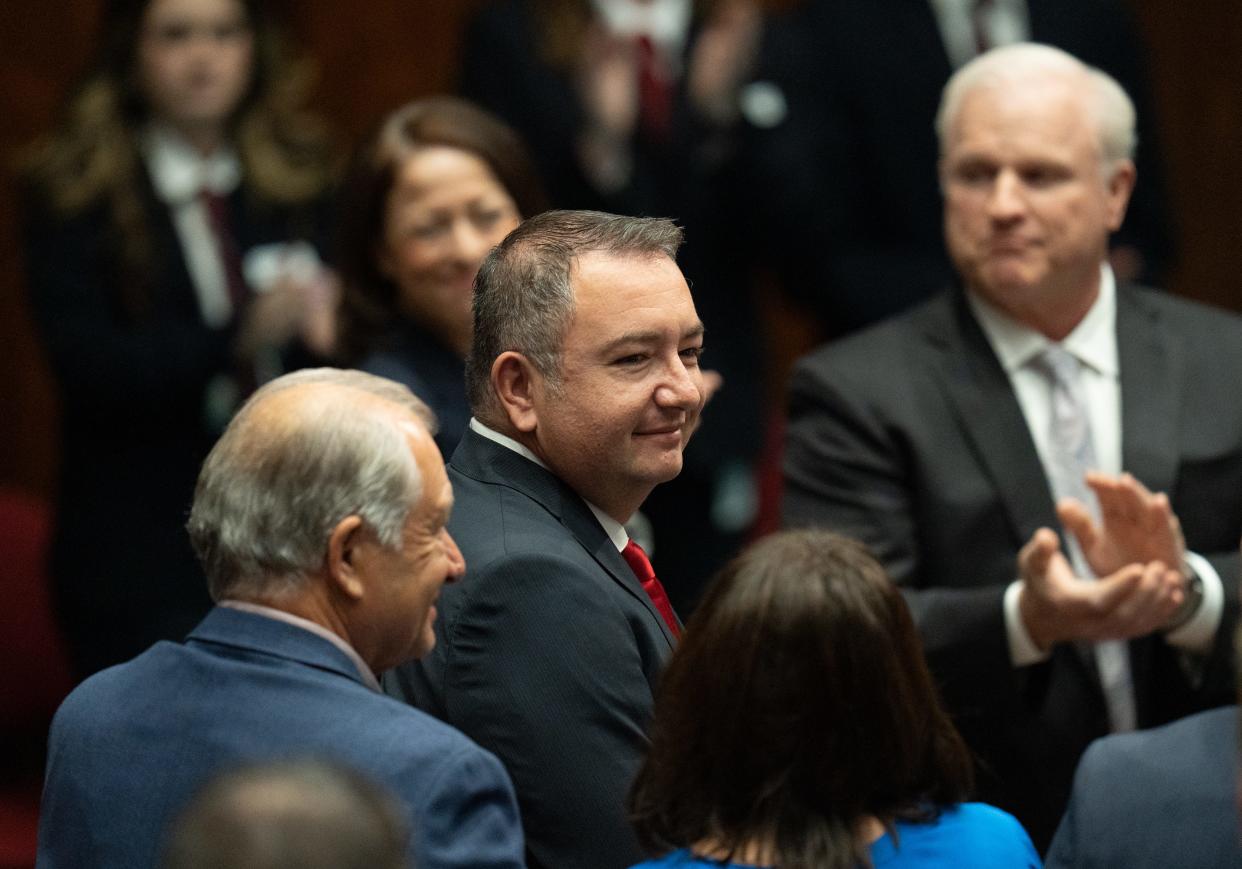Republican lawmakers vote to destroy some public records more quickly, eliminate others

New rules that allow Arizona's lawmakers to destroy emails after 90 days and delete text messages as quickly as they receive them are drawing criticism from Democrats and a public records watchdog.
Republicans in the Legislature approved the new rules along party lines this week, while also limiting debate time between lawmakers on the floor of the House to 30 minutes per bill. Each member could explain their rationale for making a vote for "up to three minutes," the rules state.
While limiting debate could constrain discussion about how proposed laws would affect Arizonans, destroying public records at a faster pace — or not retaining them at all — could leave the public in the dark about how elected officials are using their powers.
"There should be a constitutional right of access" to such records instead of a destruction policy, said Gregg Leslie, executive director of the First Amendment Clinic at Arizona State University's Sandra Day O’Connor College of Law. "Those records have important information about the legislative business that's conducted. The public has a right to know what is there."
Under the new rules, emails in a House or Senate member's legislative account will be destroyed 90 days after they are sent or received. Calendars, text messages and "communications on online platforms" can be destroyed after the "reference value has been served," meaning anytime the lawmaker decides it's no longer needed.
House Speaker Ben Toma, R-Glendale, said the House and Senate have worked on the new records rules for months and that the idea was to have a consistent policy that "strikes a balance" between disclosure and privacy.
"The old retention policy was ancient and really outdated and it didn't really reflect the way people communicate these days," Toma said, adding that the policy mirrors the state judiciary's rules on records.
Democratic Leader Andres Cano, D-Tucson, said Republicans were ignoring public records law with the new rules.
"Saying the law doesn't apply to us is a terrible message to send to the public," Cano said.
Besides granting the right to inspect public records, Arizona's Public Records Law states that records to be preserved by "all officers and public bodies" include all that are "reasonably necessary or appropriate to maintain an accurate knowledge of their official activities and of any of their activities that are supported by monies from this state or any political subdivision of this state." Sometimes, given how lawmakers use their phones, that means text messages.
Courts have generally ruled that text messages of legislators are public records when they concern legislative business, and former Arizona Attorney General Mark Brnovich wrote an opinion in 2017 affirming that for all public officials.
The Legislature's use of a rule change bypasses the need to pass a law, which would require the signature of Democratic Gov. Katie Hobbs. However, Arizona lawmakers were considering a law as recently as 2018 that would do what the rule change allows for text messages.
The Arizona Republic fought for more than a year to gain access to emails and text messages of legislators involved in the partisan review of the 2020 election in Maricopa County. Under the new rules, lawmakers could have deleted many of those messages before public inspection, though the rules require longer retention if a custodian "reasonably anticipates" the records could be part of a legal action.
Cano criticized other aspects of the new rules, including the right of the House speaker to file a lawsuit over an issue that arises "out of any injury to the House's powers or duties" without a vote from members.
"How many lawsuits can we expect?" he said. "Will it be Fraudit and Cyber Ninjas every day?"
GOP leader: Debate limit was standard practice
On the debate limits, Cano said the new rule "robs the public of important context and information about issues that impact their lives."
Toma said the Legislature had used the 30-minute-per-bill rule for the past two years already, and the new rules codify that.
"I don't understand the outrage, quite frankly," he said. "Nothing's different from last year."
House leaders could extend debate time for certain issues, he said. But he acknowledged that would be the prerogative of Republican leaders, except during times when Democrats hold the majority on the floor.
"If Republicans choose to go out and get a snack and (Democrats) want to vote to extend (the time) they can," Toma said.
Reach the reporter at rstern@arizonarepublic.com or 480-276-3237. Follow him on Twitter @raystern.
This article originally appeared on Arizona Republic: Arizona Legislature to eliminate public records faster under GOP plan

